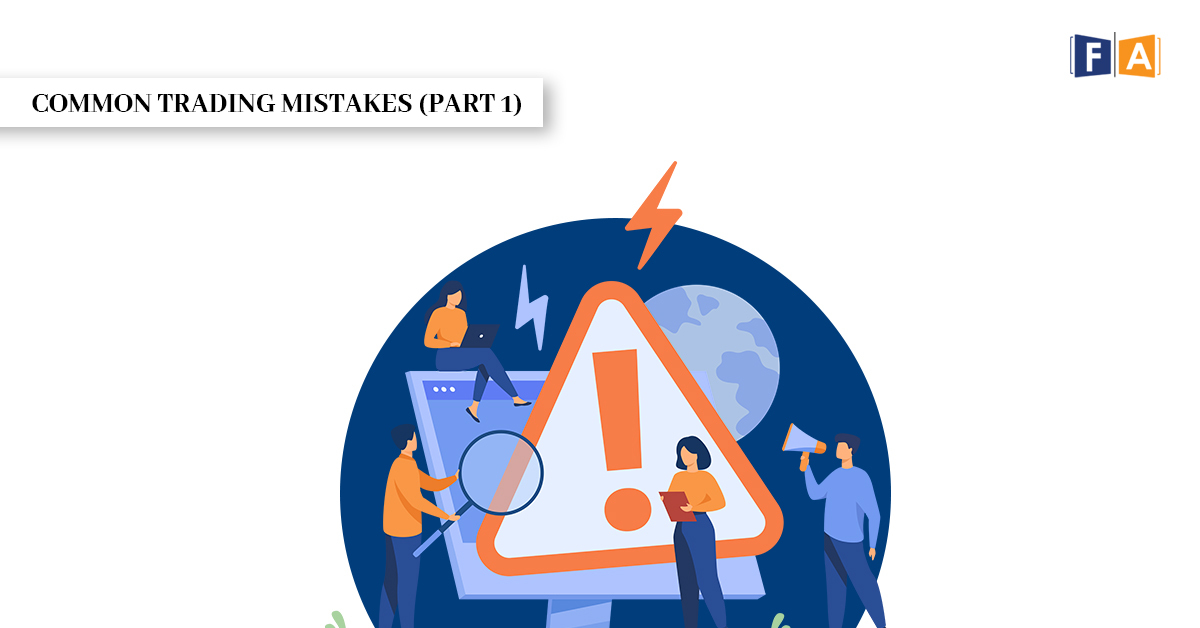
Common Trading Mistakes Part 1
Making trading mistakes is a part of every trader’s journey. Be it, someone, with no experience or someone with decades of the same, looking out for these common trading mistakes will help you analyze and executive better trades
1. A rock solid plan!
Outlining the goal with which one intends to trade, sets expectations for outcomes the right way. Be it for a secondary source of income or trading as a full time professional; clear goals help you understand and dedicate your time, type of trade and level of knowledge required for this venture
2. Curb the temptation
Only trade what you can afford to lose. The temptation of higher risk = higher rewards, does not always play well in the real life market scenario. The FOMO felt by newbies of stock market trading, when they see missed opportunities and risking it all in the next trade, lead to incredible losses. Start slow, understand your requirements and the risks you can take, while carefully studying the market and increasing your chances for profits
3. Don’t let emotions take over
When you’re on a winning spree, no trade in the world seems out of reach. This common mistake, where a series of profitable trades clouds your analytical judgment for your next move, can bring you down to an inevitable spiral of losses. Slow down on your victory, retrace your steps and understand how the market benefits you, only when you make well informed and sound decisions
4. Stop-loss order: Friend or Foe?
Based on past experiences, many traders firmly stand by their use of a stop-loss order. A useful tool for risk management, in a volatile market, where there is always an underlying risk of extreme price swings, having a stop-loss order proves to be beneficial to curve any unprecedented market scenarios
5. Risk-Reward Ratio
Understanding this phenomenon takes practice and experience, based on the trader’s level of comfort. The three most common components being: current stock prices, profit objective and stop exit price. While the first component remains to be a known entity, the other two are subjective in nature. The risk-reward ratio of a stock can differ for each trader depending on personal preference or the type of trade being considered.
While there are many more mistakes that can be made, depending upon an individual’s approach to trading, each trade comes with a lesson. Be it a profit made or a loss incurred, to be a successful trader, one must be prepped with in-depth knowledge and turn towards the experts when in need (have we met before? check out this link to know more: FinLearn Academy)





